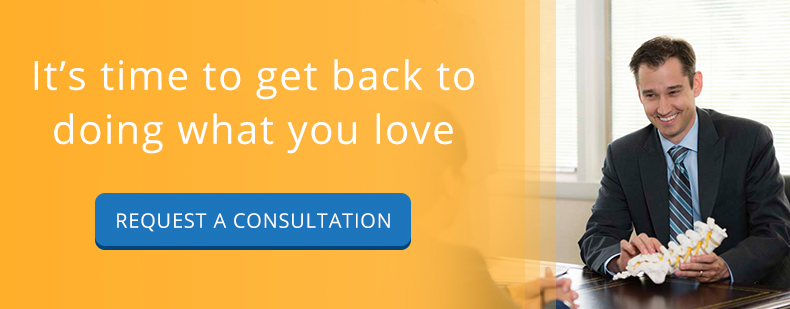When you’ve suffered from pain related to a herniated disc, the prospect of a life with no ruptured disc symptoms might seem almost too good to be true. Luckily, with advanced surgical techniques, including anterior cervical fusion surgery, you can expect to resume a normal lifestyle within just months. Knowing what to expect after anterior cervical fusion surgery will give you the information you need to facilitate full healing and help you avoid reinjury.
The First Hours
Immediately after you come out of surgery, you will be taken to recovery. You may receive pain medication to help with post-surgical discomfort. You will likely experience a sore throat or difficulty swallowing after surgery. This is normal and typically resolves within several days. Obviously, eating soft foods will help prevent excessive discomfort.
Your Hospital Stay
With most cervical fusion surgeries, hospital stays are typically one to two days. You can expect this to be the minimum — depending on the complexity of your surgery and your own surgeon’s preferences, your hospital stay may be longer. During this time, you will be observed for any complications and your new surgical site will be cared for.
Heading Home
At the end of your hospital stay you’ll be released to go home with specific instructions on wound care, diet, accepted activities, etc. Depending on your unique needs, you may have additional information that will help you achieve full recovery from pain or discomfort. Having a timeline and knowing what to expect after anterior cervical fusion surgery will help you plan ahead.
Activity
Obviously, you will need to follow a strict limitation on your activity when you return home after your anterior cervical fusion surgery. It will take at least six weeks for adequate healing to take place; in this time you need to follow your surgeon’s instructions to ensure that you don’t damage any of the tissue repair taking place. Sudden or repetitive movements, especially of the head and neck, should be avoided.
Sitting, standing, walking, lying down and climbing stairs one at a time are typically fine; if, for some reason you shouldn’t be engaging in one or more of these, your doctor will apprise you of this. Reaching up over your head is not a good idea and should be avoided within the first six weeks.
You should also not try to lift more than 5-8 pounds; your doctor may advise you to lift even less.
Showering is fine as soon as you get home, given you avoid any movement that will put strain on your neck, back or shoulders, but the wound should not be immersed in water as occurs during a bath. You may want to invest in a good shower seat; this can help you prevent slips and falls and will also take some of the strain off your spine.
It’s possible your doctor will send you home with a cervical collar to help prevent excessive movement that might put strain on your new surgical site. Wear it as directed; you may need to wear it even while showering and sleeping. If you’re sent home with a hard collar, you’ll likely be asked to wear it for a duration of 4-12 weeks; a soft collar is usually used for mild support and only recommended for a few days to a week.
Driving is typically discouraged until your fusion is healed enough to allow you to turn your head. The restrictions placed on your movement can make it dangerous to drive, as visibility can be compromised. Discuss with your doctor when they think it would be safe for you to drive again.
Diet and Nutrition
It may not seem obvious, but diet is going to be one of the biggest factors in how well you heal from surgery. Your body will be using a tremendous amount of protein and minerals such as calcium; these will help repair tissue and muscle and regrow bone in the fusion area. Therefore, you’ll need to increase your intake to prevent your body from robbing your muscles of protein to heal the fusion.
The first four months are of utmost importance — foods such as lean meats, tofu, milk and eggs can provide you with much of the protein you’ll need. Ask your surgeon if they recommend a vitamin supplement in addition to your normal diet.
Attend Your Checkups and Physical Therapy As Scheduled
It’s very important to make it to all of your scheduled checkups. Your surgeon will want to make sure that everything is healing properly and that you’re within the “norm” for recovery. If there is anything amiss, it will be caught sooner and can be corrected before it becomes a larger problem that may require additional surgery. It is also a great way to get feedback on the next steps in your recovery process. You can expect to have x-rays taken so the doctor can see how the fusion is progressing.
Physical therapy will help you regain strength and flexibility; it’s essential you follow your doctor’s orders and attend all of your appointments regularly.
After Healing
Once healing is complete, you may be able to resume many of the activities you participated in prior to your disc injury. This can include sports and other recreational activities. Continue to eat a balanced diet and receive enough exercise; if you’ve been given an exercise regimen to follow after physical therapy, be sure to use it.
It’s important to learn what to expect after anterior cervical fusion surgery so that you can make a full recovery, allowing you to return to your busy, active lifestyle!


